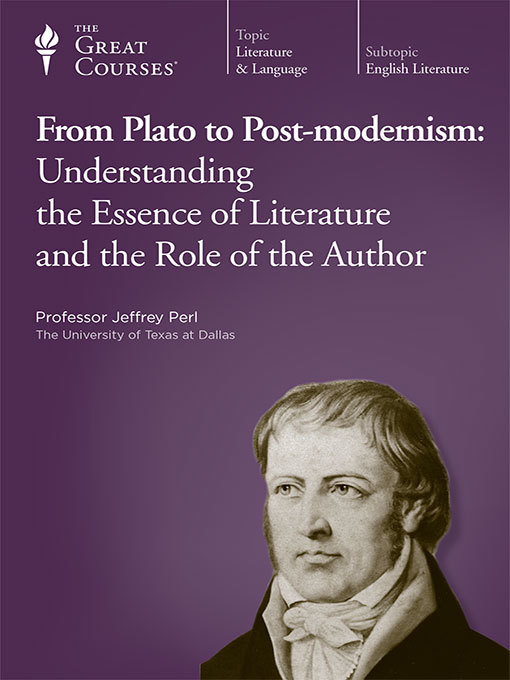Any lover of Shakespeare or the Romantic poets can concede that poetry is pleasurable. But is it good for you? Can it teach you anything? These are questions that have beguiled and engaged eminent critics for millennia, and now you can develop your own answers and options with these 24 lectures.The source of poetry's wellspring; the relationship between poetry and human progress; the possible truths (and lies) involved in the literary arts; the role of the author; these lectures tap into an enormous range of material to explore these and other provocative issues. You'll follow the strands of this "conversation" between philosophy and the literary arts down the millennia, profiting from in-depth analyses of works by Plato, Aristotle, Horace, Sir Philip Sidney, Dryden, Pope, Wordsworth, Shelley, Coleridge, Matthew Arnold, T.S. Eliot, Northrop Frye, Foucault, Derrida, and more.Throughout these lectures, you'll meet the poet in many guises. These include: the divine poet (a supernatural creator who transcends the laws of nature), the alchemical poet (the inspired individual who fuses humanity's divided nature into one), the common poet (the poet who roots himself or herself in the real world and speaks for the common individual), the playful poet (who champions sensitivity of feeling, contradictory truths, and uncertainties), and the prisoner poet (who's a product of, and a slave to, his or her own subconscious suppositions).By concentrating on critical reflections about poetry - the oldest of the literary arts - you'll come away with lessons on how to understand literature, and all of the arts, more generally. More importantly, you'll be prepared to join in these critical conversations yourself.

-
Creators
-
Publisher
-
Release date
December 30, 1999 -
Formats
-
OverDrive Listen audiobook
- ISBN: 9781682767160
- File size: 352367 KB
- Duration: 12:14:05
-
-
Languages
- English
Why is availability limited?
×Availability can change throughout the month based on the library's budget. You can still place a hold on the title, and your hold will be automatically filled as soon as the title is available again.
The Kindle Book format for this title is not supported on:
×Read-along ebook
×The OverDrive Read format of this ebook has professional narration that plays while you read in your browser. Learn more here.